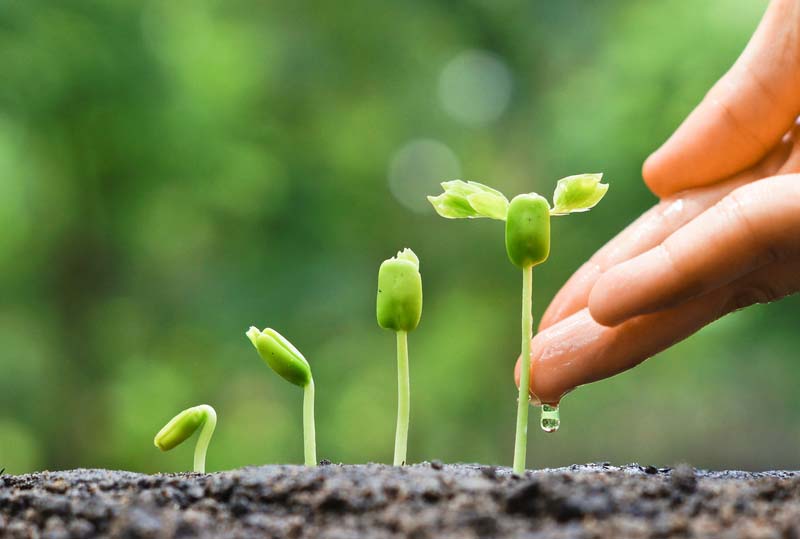Germinate seeds early
IntroductionIf you're a gardener, you know that a seed is only as good as its germination. You can't get any growth out of a seed if it never sprouts in the first place! This can be frustrating if you're trying to grow plants from seed and they seem to take forever to pop up. Here are some tips on how to make sure those seeds start sprouting right away so your garden grows like a weed:SoilTo get the best results, soil should be moist but not wet. It should also be loose and not compacted, slightly acidic (pH 5-6) and warm (about 70 degrees Fahrenheit). |
 |
Seeds
If you're a gardener, you probably know that there are plenty of things that can go wrong when it comes to growing plants. One common challenge is getting seeds to germinate--or sprout--in the right way at the right time. There are many factors that affect how well your seeds will germinate and grow, including:
Soil temperature (or "germination temperature")
affects how quickly your seeds sprout into plants. You can find out what this number is by looking at the packet or jar of your seed packet or jar and seeing if it says something like "60-70 degrees F." If so, this means that all those other numbers below don't matter as much because they aren't going to change unless we change our environment somehow (like putting our plant indoors).
 |
WaterWatering your seedlings is important, but you don't want to overdo it. Watering with the right amount will help them grow into strong plants. Here are some tips:Water your seedlings when their soil is dry--don't let it get completely dry! You can tell if a plant needs water by squeezing its stem; if it feels soft and mushy (like fresh bread), then it's time to water again. Water from below rather than above--this prevents fungal diseases from forming on top of leaves or stems because there's less surface area for spores to latch onto when they land on wet soil instead of dry air particles floating around inside an enclosed potting medium like vermiculite or peat moss (which helps keep humidity high). Don't water at night because this will cause fungus gnats (small black flies) which live in moist environments like compost bins where they lay eggs near decaying matter such as dead leaves." |
Sunlight
If you're planning to grow your own seedlings, sunlight is an essential element. In fact, it's important for the growth of all plants--even if you don't have access to direct sunlight during the winter months (or any time of year, really).
If your house is like mine and doesn't have a south-facing window where you could place your seeds to soak up those rays of light, there are other ways to get them what they need: Place a lamp near where you're going to plant them and make sure it has a timer so it turns on at least 8 hours per day; this will simulate natural daylight as closely as possible without exposing young plants directly to artificial lights
Follow these tips to make sure your seeds grow into healthy plants.
- Buy the right soil.
- Plant your seeds.
- Water them regularly, but not too much--you don't want to make the soil soggy or waterlogged.
- Give them plenty of sunlight so they can grow big and strong!
Conclusion
We hope these tips have been helpful in your quest to germinate seeds. If you have any questions or comments, please reach out!